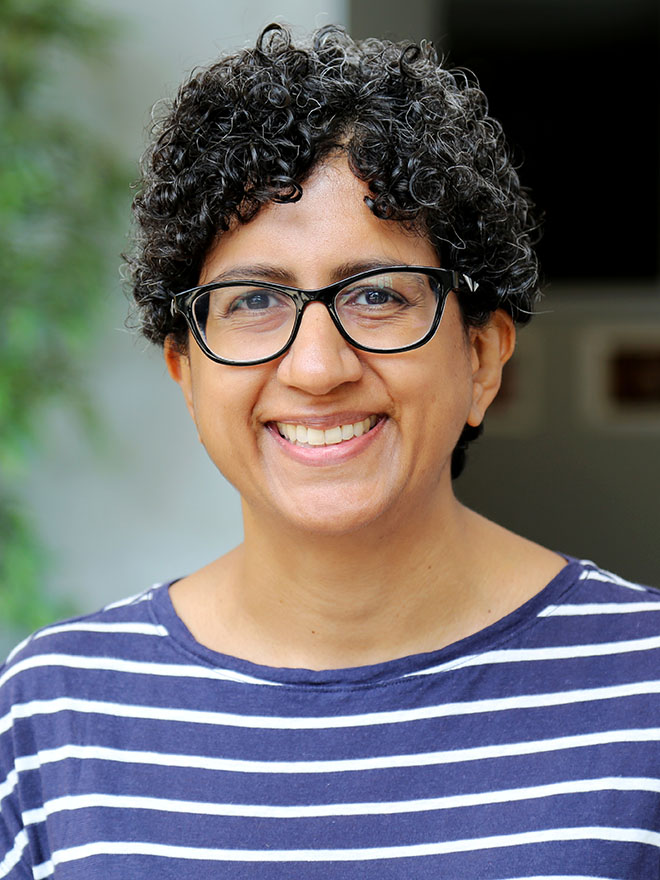
At the Federal Reserve Bank of Boston, Sara Chaganti, PhD’18, is putting her Heller credentials to work studying challenges faced by low and moderate-income families across New England.
As a deputy director in the Regional & Community Outreach department, Chaganti conducts both qualitative and quantitative research on issues ranging from racial inequality to COVID-19. Her findings are used to inform public policy at the state and regional level, and have been cited in the media.
In March, as the first coronavirus outbreak swept the region, Chaganti began studying the effects of the pandemic on different sectors of the population. Using census data, she and her colleagues identified service workers-- especially those of color-- as being the most at-risk, whether from losing jobs in restaurants and bars or being called to front-line jobs at grocery stories and health care centers.
“This particular workforce tends to be people of color, especially Hispanics, and they are disproportionately likely to need public benefits to supplement their low wages,” she explains. “This was cause for concern.”
In a brief outlining their findings, Chaganti and her team described the challenges posed by the pandemic as “exacerbate[ing] existing and long-standing inequalities.” Policy responses to the pandemic, they wrote, “should support this population in order to promote equitable recovery.”
Chaganti has been interested in public policy since before she knew what the words meant. Growing up in New York City, “I always had a sense that something was holding us all together,” she recalled, “and I was really curious about it.”
That fascination would eventually lead Chaganti to Brandeis, where she entered the joint PhD program in social policy and sociology. She quickly accepted a research position studying housing subsidies for homeless families with Heller’s Institute on Assets and Social Policy. For the next 8 years, she split her time between classes and research projects, a dual focus that prepared her well for a career in social science research, she said.
“I got a sense, in theory, of what we would hope for this to look like and then, in practice, what it's actually like doing research with human lives with all their complexities and in a constantly changing context,” she said. “It gave me a much more nuanced understanding of what this field is.”
At Heller, she sharpened her focus to workforce development. As a student, she helped to secure grant funding and implement a project exploring new structures and practices for workforce development among low-wage and low-skill workers. She remained on the project after graduating, presenting findings alongside her colleagues at the Labor and Employment Relations Association’s annual meeting in 2018.
“Heller was an environment where I was able to develop as a researcher, to do the kind of work that I wanted to do,” she recalled. “I was lucky to find a place where people were supporting each other and really aligned with the mission. The first time I visited, I heard the message about social justice everywhere in the building. It signaled to me that this was a place I would want to be.”
At the Federal Reserve Bank of Boston, Chaganti is continuing to do work that matters to her, while no longer beholden to grant funding. The flexibility allows her team to pivot when events like the coronavirus demand it, producing work that contributes to the regional and national dialogue while influencing policies that have the potential to immediately impact people’s lives.
This summer, as protests against police brutality erupted across the country, Chaganti and her team worked quickly to ensure their research methods, questions and data analysis were conducted through a racial equity lens. It was a process that got to the heart of Chaganti’s professional interests in wealth and labor market disparities.
“My job is to notice what's happening and support the conversation in a way that will be productive,” said Chaganti. “I feel like it's applied work at its best.”
